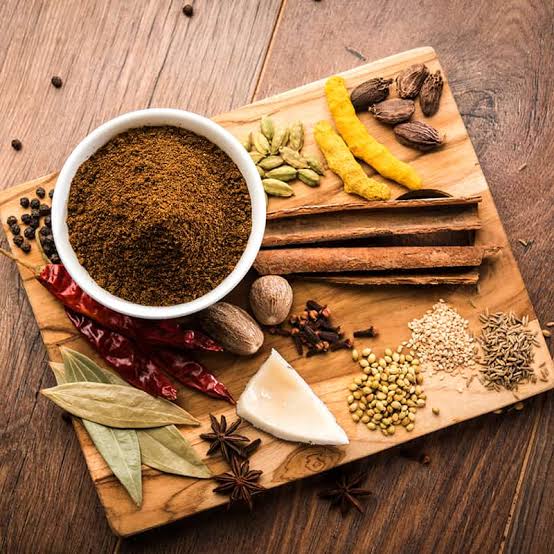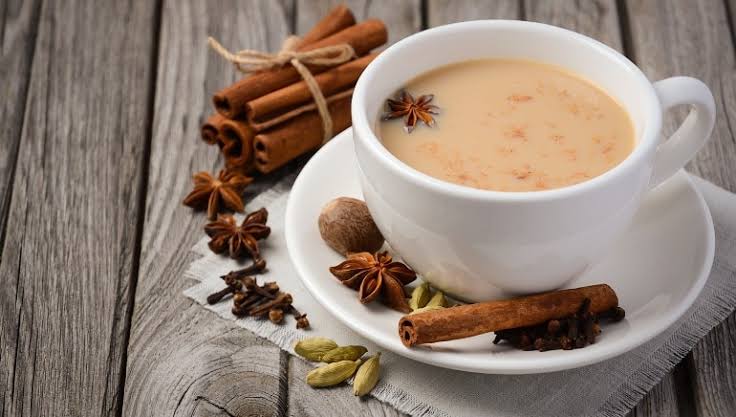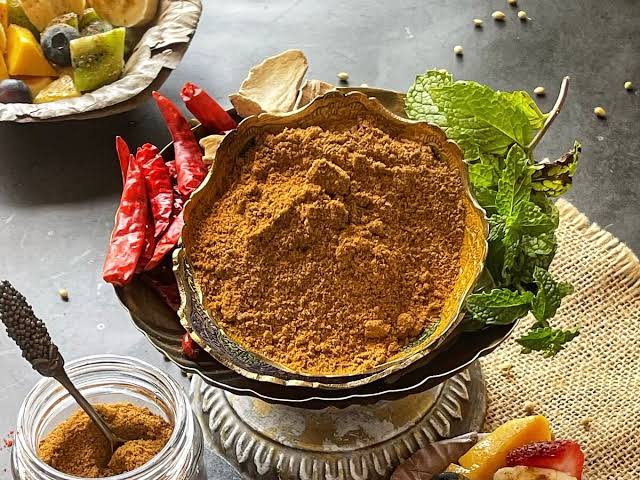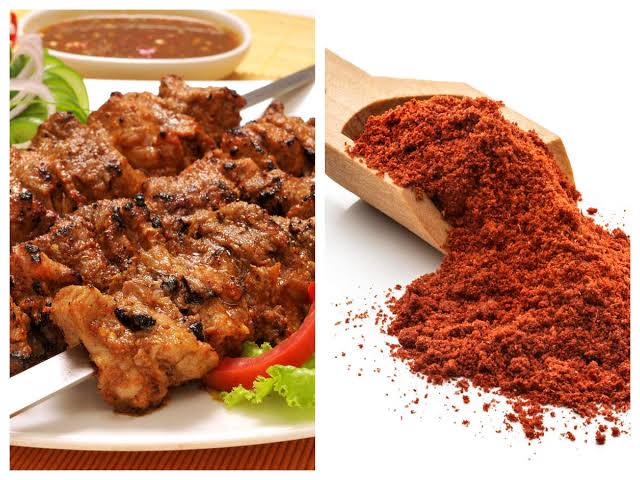Masala spice is a special blend of herbs and spices that adds flavor to many dishes. People have been using masala spice for centuries to make their food taste better. It is a magical mixture of different ingredients that can turn a plain meal into a tasty delight.
Masala spice is not just one single spice; it’s a combination of several spices, each contributing its unique taste and aroma. Some of the common spices found in masala spice include coriander, cumin, turmeric, cardamom, cinnamon, and cloves. These spices are carefully selected and mixed in specific proportions to create the perfect balance of flavors.
One of the great things about masala spice is its versatility. You can use it in a wide variety of dishes, from curries to soups to grilled meats. It can be used in both vegetarian and non-vegetarian cooking, making it a staple in many households around the world.
Making your own masala spice blend at home is also quite easy. All you need is a few basic spices, a mortar and pestle, and some patience. By grinding and mixing the spices yourself, you can tailor the masala to your own taste preferences. Some people like it spicier, while others prefer it milder – the choice is yours.
Masala spice doesn’t just enhance the flavor of your food; it also has some health benefits. Many of the spices commonly found in masala have antioxidant and anti-inflammatory properties. For example, turmeric, a key ingredient in many masala blends, is known for its anti-inflammatory properties. Cumin may aid in digestion, and cinnamon has been linked to potential blood sugar regulation.
In addition to its culinary and health benefits, masala spice has cultural significance in many regions. It plays a crucial role in Indian, Middle Eastern, and South Asian cuisines. Each culture has its own variation of masala spice, resulting in a diverse range of flavors and aromas.
When you cook with masala spice, your kitchen is filled with a delightful fragrance that can instantly transport you to far-off places. It’s like taking a culinary journey without leaving your home.
To sum it up, masala spice is a wonderful addition to any kitchen. Its rich history, versatile use, and health benefits make it a must-have in your spice cabinet. Whether you’re a seasoned chef or just starting to explore the world of cooking, using masala spice can elevate your dishes to a whole new level of deliciousness. So, don’t hesitate to experiment with this magical blend of flavors and discover the joy it can bring to your cooking.
Read Also: The Origins of the Apple Fruit
14 Health Benefits of Masala Spice

Here are 14 health benefits associated with the consumption of masala spice:
1. Anti-Inflammatory Properties: Many spices in masala, like turmeric and ginger, contain compounds that can help reduce inflammation, potentially benefiting those with inflammatory conditions.
2. Digestive Aid: Cumin, a common spice in masala, has been used traditionally to aid digestion and alleviate digestive discomfort.
3. Antioxidant Boost: Masala spices, such as cinnamon and cloves, are rich in antioxidants that can help protect cells from oxidative damage.
4. Weight Management: Some studies suggest that certain spices in masala, like black pepper, may help boost metabolism and aid in weight management.
5. Heart Health: Turmeric and cardamom in masala have been linked to heart-healthy benefits, including improved cholesterol levels and blood pressure regulation.
6. Blood Sugar Regulation: Cinnamon, a key component in masala, may help regulate blood sugar levels and improve insulin sensitivity.
7. Pain Relief: The anti-inflammatory properties of masala spices can offer relief from conditions associated with pain and inflammation.
8. Improved Immunity: Many masala spices, like garlic and ginger, contain compounds that can enhance the immune system, potentially reducing the risk of infections.
9. Respiratory Health: Certain spices in masala, including black pepper and cloves, have been used traditionally to alleviate respiratory issues like coughs and congestion.
10. Antibacterial Properties: Spices like garlic and cloves in masala have natural antibacterial properties that may help combat infections.
11. Brain Health: Curcumin, found in turmeric, has shown potential in supporting brain health and reducing the risk of neurodegenerative diseases.
12. Gut Health: Some spices in masala, like fennel and cardamom, can promote healthy gut flora and aid in digestion.
13. Reduced Risk of Cancer: The antioxidants in masala spices may help protect against cell damage and lower the risk of certain cancers.
14. Stress Reduction: Aromatic spices in masala, such as cloves and cardamom, can have calming effects and may help reduce stress and anxiety.
Remember that while masala spice offers these potential health benefits, it’s essential to consume it in moderation as part of a balanced diet. Moreover, individual responses to spices may vary, so it’s a good idea to consult with a healthcare professional or nutritionist for personalized advice on incorporating masala spice into your diet for specific health concerns.
Chai Masala

Chai Masala is a special mixture of spices that is used to enhance the taste of tea. It is a popular beverage in many parts of the world, especially in India, where it is known as “chai.” Chai Masala adds a unique and delicious flavor to tea, making it a favorite drink for people of all ages.
To make Chai Masala, you need a combination of aromatic spices like cinnamon, cardamom, cloves, ginger, and black pepper. These spices are carefully selected for their distinct flavors and health benefits.
Let’s take a closer look at each of these spices and their role in creating the perfect Chai Masala:
1. Cinnamon: Cinnamon adds a sweet and warm flavor to Chai Masala. It also has anti-inflammatory properties that can be beneficial for health.
2. Cardamom: Cardamom brings a hint of citrusy and minty freshness to the blend. It is known to aid digestion and promote overall well-being.
3. Cloves: Cloves contribute a strong and slightly spicy flavor to Chai Masala. They are also known for their antibacterial and antioxidant properties.
4. Ginger: Ginger provides a zesty and slightly spicy kick to Chai Masala. It is well-regarded for its digestive benefits and ability to soothe a sore throat.
5. Black Pepper: Black pepper adds a mild spiciness to the blend, balancing the sweetness of other spices. It also aids in digestion and can help improve metabolism.
To prepare Chai Masala, you simply mix these spices together in the right proportions. Some people like to grind them into a fine powder, while others prefer to use whole spices. You can adjust the quantity of each spice to suit your personal taste, making your Chai Masala unique to you.
To make a cup of Chai, you’ll need to brew a strong black tea, like Assam or Darjeeling tea. Add a pinch of Chai Masala to the boiling tea along with milk and sugar to taste. Let it simmer for a few minutes to allow the flavors to infuse. The result is a fragrant and delightful cup of Chai that warms your soul and awakens your senses.
Chai Masala is not just about its delicious taste; it also offers several health benefits. The spices in Chai Masala are known for their therapeutic properties. They can help improve digestion, boost the immune system, and provide relief from common cold symptoms. Additionally, the warmth of Chai can be quite comforting on a chilly day.
In addition, Chai Masala is a magical blend of spices that transforms an ordinary cup of tea into a flavorful and aromatic experience. Whether you enjoy it for its taste or its health benefits, Chai Masala is a beloved beverage that has stood the test of time. So, the next time you savor a cup of Chai, remember the delightful Chai Masala that makes it truly special.
Read Also: How to increase Passion Fruit Yields
Chaat Masala

Chaat Masala is a flavorful and sweet spice blend that adds a burst of excitement to different types of Indian street foods and snacks. This powerful mixture of spices is a key ingredient in creating the irresistible flavors of chaat, a popular street food genre in India. Chaat Masala is known for its unique blend of sweet, sour, salty, and spicy flavors, making it a must-have condiment for anyone looking to recreate the vibrant taste of Indian street food at home.
The ingredients in Chaat Masala can vary slightly depending on regional preferences and individual recipes, but it typically includes a combination of the following spices:
1. Black Salt: Also known as kala namak, black salt provides a distinct sulfurous and slightly eggy flavor to Chaat Masala. It’s responsible for the characteristic “chaat” taste.
2. Cumin: Ground cumin adds earthiness and warmth to the blend, enhancing the overall aroma.
3. Coriander: Coriander powder contributes a citrusy and slightly sweet note, balancing the flavors.
4. Amchur (Dried Mango Powder): Amchur lends the tanginess that is essential to Chaat Masala’s taste profile.
5. Red Chili Powder: This spice adds heat and a touch of spiciness, but it can be adjusted to suit personal preferences.
6. Asafoetida (Hing): A pinch of asafoetida provides an umami-like depth to the blend.
7. Black Pepper: Black pepper offers a hint of spiciness that complements the other spices.
To make Chaat Masala, these spices are carefully combined in specific ratios to achieve the perfect balance of flavors. The result is a fine, aromatic powder that can be sprinkled generously over various street foods and snacks, such as bhel puri, pani puri, aloo tikki, and fruit chaat, to name just a few.
Chaat Masala is not only about its delectable taste but also its ability to awaken the taste buds. Its sweet, salty, and tangy notes make it a versatile seasoning that can be used in a variety of dishes beyond chaat. Some people even sprinkle it on fresh fruits like mangoes or pineapples to give them an extra zing.
In addition to its delicious taste, Chaat Masala is believed to aid digestion due to the presence of spices like cumin and black salt. It’s also known for its refreshing and cooling properties, making it a popular choice during hot summer days.
So, whether you’re exploring the vibrant world of Indian street food or looking to add an exciting twist to your homemade snacks, Chaat Masala is the secret ingredient that brings the authentic flavors of India’s bustling streets right to your plate. One taste, and you will get to understand why it is a beloved spice blend that’s cherished by food enthusiasts around the world.
Tandoori Masala

Tandoori Masala is a special spice blend used in Indian cooking. It is known for its rich and aromatic flavors that make dishes taste delicious. This masala mix is an essential ingredient in many Indian recipes, especially in the preparation of tandoori dishes.
Tandoori Masala is made up of a variety of spices like cumin, coriander, ginger, garlic, paprika, and garam masala. These spices are carefully blended to create a perfect balance of flavors. Some recipes might include yogurt or lemon juice to enhance the taste and create a tenderizing effect when used as a marinade.
One of the most popular uses of Tandoori Masala is in tandoori chicken. To make this dish, chicken pieces are marinated in a mixture of yogurt and Tandoori Masala. This marinade infuses the chicken with a burst of flavors and a beautiful reddish color. Then, the marinated chicken is cooked in a tandoor, a traditional clay oven, which gives it a smoky and charred taste that’s simply irresistible.
Tandoori Masala isn’t limited to chicken; it can be used with other meats like lamb, fish, or even vegetables. It’s versatile and can be adapted to various preferences. You can adjust the level of spiciness by adding more or less masala, making it suitable for everyone from spice lovers to those who prefer milder flavors.
Aside from tandoori dishes, Tandoori Masala is also used in various Indian curries and stews. It adds depth and complexity to these dishes, making them more flavorful and aromatic. Additionally, it can be used as a seasoning for roasted vegetables or sprinkled on snacks like popcorn or roasted nuts for a unique twist.
Making your own Tandoori Masala at home is simple and allows you to customize the blend to your liking. You can experiment with different proportions of spices to achieve your preferred flavor profile. This homemade masala can be stored in an airtight container and used whenever you want to add that special Indian flair to your dishes.
In summary, Tandoori Masala is a versatile spice blend that’s a staple in Indian cuisine. It adds a burst of flavors to various dishes, from tandoori chicken to curries and even snacks. Whether you buy it pre-made or create your own blend, Tandoori Masala is sure to elevate your culinary creations with its delightful taste and aroma.
Read Also: Walters Recycling Services Complete Guide
